
Samsung board de41-00376b touch panel: Is it a membrane switch?
Samsung board de41-00376b touch panel: Is it a membrane switch?
What is the DE41-00376B touch panel?
The Samsung DE41-00376B is a control interface used in various Samsung appliances, especially ovens and microwaves. It looks simple on the outside—just a flat control surface. It combines visual design, electrical function, and user-friendly layout in one compact form.
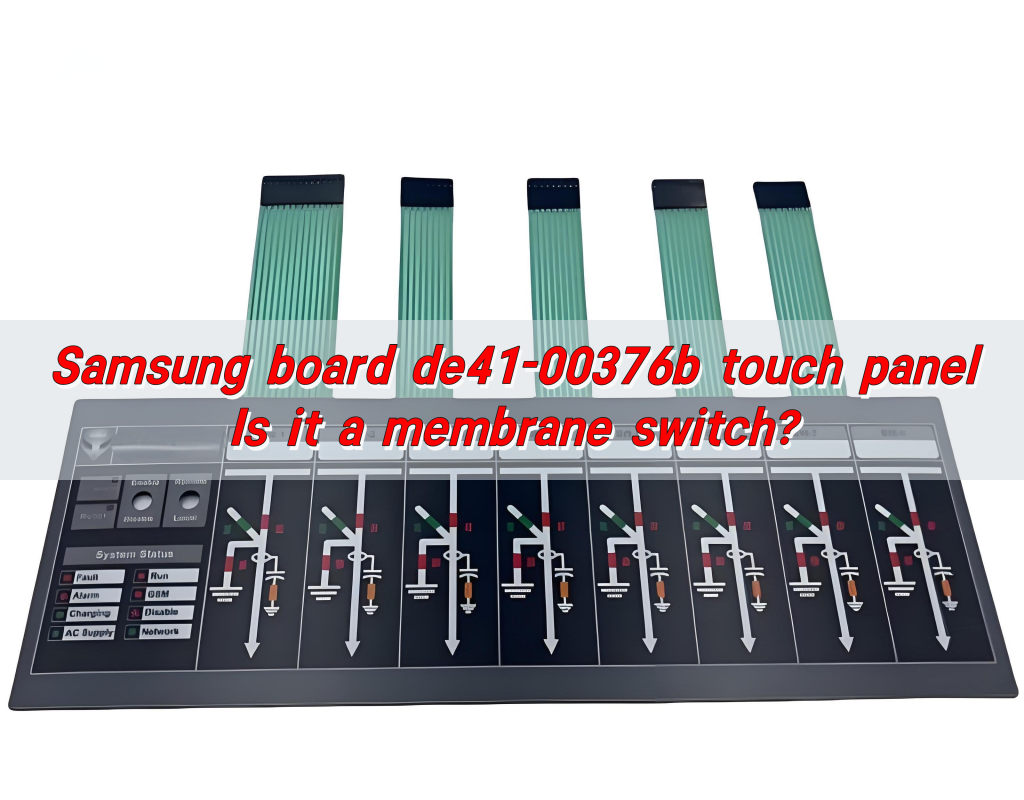
This panel connects directly to the main control board of your appliance. It sends the signal when you press “Start,” adjust the time, or select a cooking mode. It does not have bulky buttons or traditional switches. Instead, it’s flat, durable, and highly responsive.
Is the DE41-00376B touch panel a membrane switch?
Yes, it is. The DE41-00376B touch panel is built on membrane switch technology. This is a type of electrical switch for turning a circuit on and off.
What makes membrane switches special is their construction. They are thin, flexible, and consist of several layers. This design allows them to remain flat but still respond instantly when pressed.
The DE41-00376B uses this layered technology to detect touch input. There are no moving parts like in mechanical switches. Instead, a conductive layer beneath the top surface registers your touch and sends the appropriate command to the appliance.
This technology has become very popular in kitchen appliances for a good reason. It offers excellent reliability, slim profile, and easy cleaning. But more importantly, it performs consistently over time without requiring complex hardware inside.
How does the touch panel work?
The DE41-00376B panel might appear like a decorative sticker on your appliance. But under the hood. It’s composed of multiple flexible layers laminated together:
- Top Graphic Layer: This is what you see and touch. It’s made of durable polyester and printed with icons and labels.
- Spacer Layer: This separates the top layer from the circuit layer underneath, creating a gap.
- Circuit Layer: This contains conductive traces that connect to the control board.
- Bottom Layer: This acts as a support base, sometimes with a second conductive layer.
When you press a button, the top layer flexes downward. It bridges the gap between the two conductive traces. Once the connection is made, the signal is sent to the main control board.
Because of its flat construction, it has no moving plastic parts that can wear down. That’s one reason why membrane switches like this one are used in high-use appliances.
What is the Samsung DE41-00376B touch panel used for?
This specific panel is primarily found in Samsung ovens, microwaves, and range models. It gives users a clean and modern interface to control settings.
But beyond just functionality, it plays a key role in the product’s user experience. The smooth surface is easy to clean. There are no crevices for food or grease to get into. Users can quickly wipe it down, keeping the appliance looking new.
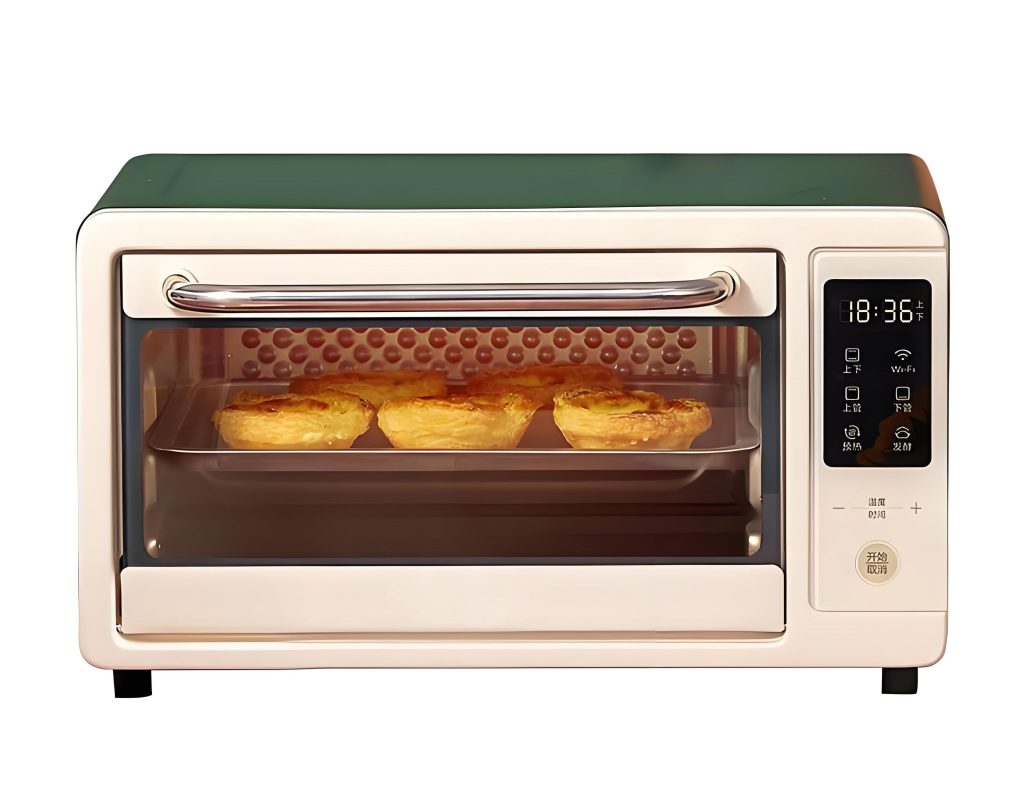
It also increases design flexibility. Printing patterns and custom icons make the device more stylish.
The panel is not just about looks or ease. It also helps reduce manufacturing complexity. One single flexible part replaces dozens of mechanical buttons, wires, and plastic parts. This lowers production costs and increases reliability.
How long does a Samsung DE41-00376B membrane switch last?
On average, membrane switches are rated for over 1 million actuations. That means you can press a button one million times before it might show signs of wear. In home use, that could mean over 10 years of reliable operation.
Samsung uses high-quality materials in this model. The graphic layer resists fading, scratching, and heat. Meanwhile, the inner conductive layers are built to withstand constant use.
Even in environments with frequent exposure to steam, heat, or oil, the panel performs consistently. Many users report these panels working flawlessly even after a decade. That’s a strong statement for long-term reliability, especially for kitchen appliances that often operate daily.
If the panel ever fails, it’s often due to moisture infiltration or improper cleaning chemicals. But under normal use, it’s built to last.
What are the advantages of using a membrane switch over mechanical buttons?
There are several major advantages to using membrane switches like the one found in the DE41-00376B panel. These aren’t just technical benefits—they have a real impact on your day-to-day experience with the appliance.
- 1. Slim and Lightweight
Membrane switches are thin. This makes them ideal for modern appliance designs, where minimalism and compact construction are key.
- 2. Sealed and Waterproof
The sealed surface means no crumbs, oil, or spills can get inside. It’s easier to clean, more hygienic, and highly resistant to damage from moisture.
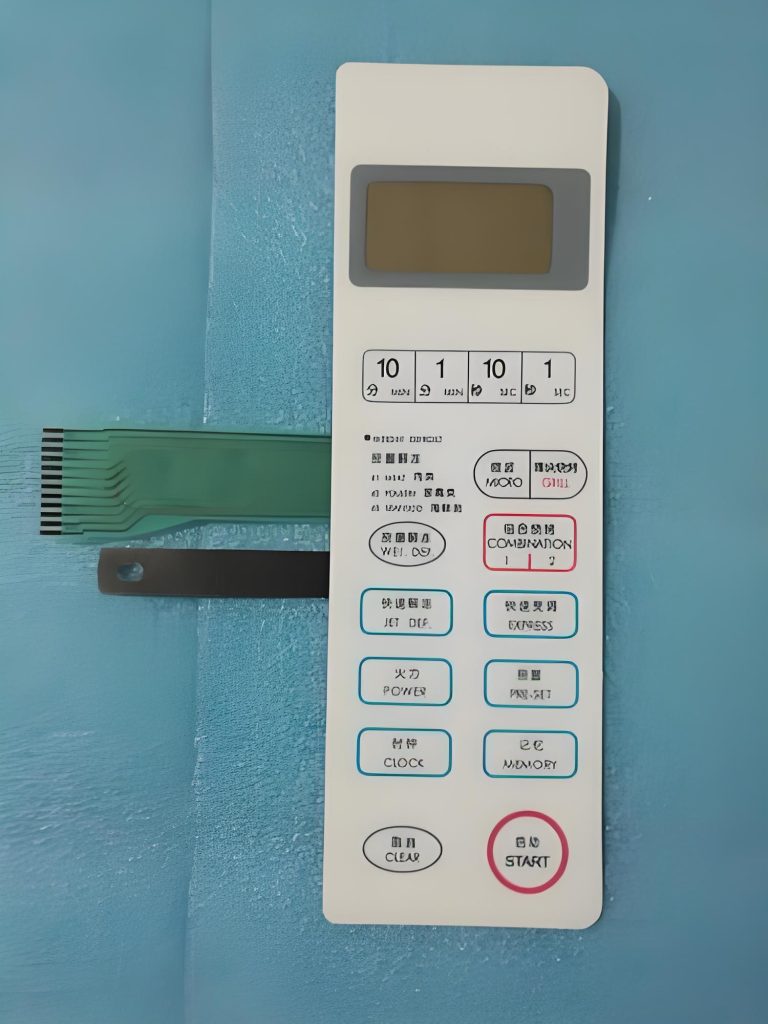
- 3. Durable Over Time
As mentioned, these switches can withstand millions of presses. There’s no risk of mechanical parts breaking, wearing out, or sticking.
- 4. Cost-Effective
By reducing the number of components, membrane switches lower manufacturing costs without sacrificing quality. That means better performance at a more affordable price.
- 5. Customizable Design
Manufacturers can print any layout or icon on the top layer. This allows intuitive, stylish, and fully branded interfaces.
- 6. Safe and Reliable
There are fewer failure points compared to traditional buttons. This means less risk of malfunction, which is critical for high-use devices like ovens.
- 7. Energy Efficient
Membrane switches use very low power. They’re perfect for energy-conscious appliances that stay in standby mode or use touch sensors for activation.
With all these advantages, it’s clear why Samsung and other top brands use membrane switch panels in their appliances. The DE41-00376B is a perfect example of this smart engineering in action.
Conclusion:
The Samsung DE41-00376B touch panel may seem like a simple part of your kitchen appliance. Built using membrane switch technology, it offers long-term performance, excellent user interaction, and minimal maintenance.
Unlike mechanical buttons that wear out or become sticky, this panel provides quiet, instant, and accurate control with every press. Its sealed structure, high resistance to wear, and sleek appearance make it a key component in modern appliance design.
Need expert advice or supply for high-performance membrane switches like the DE41-00376B?
Reach out to our team anytime at sales@best-membraneswitch.com
Silicone Rubber Keypad Manufacturer, Custom Membrane Switches
What is a silicone rubber keypad? Silicone rubber keypad is a flexible input component made from molded silicone elastomer. It allows users to press keys to send commands to an electronic device. Each key is formed as part of a single rubber sheet or pad. When pressed, the key makes contact with a circuit below ...
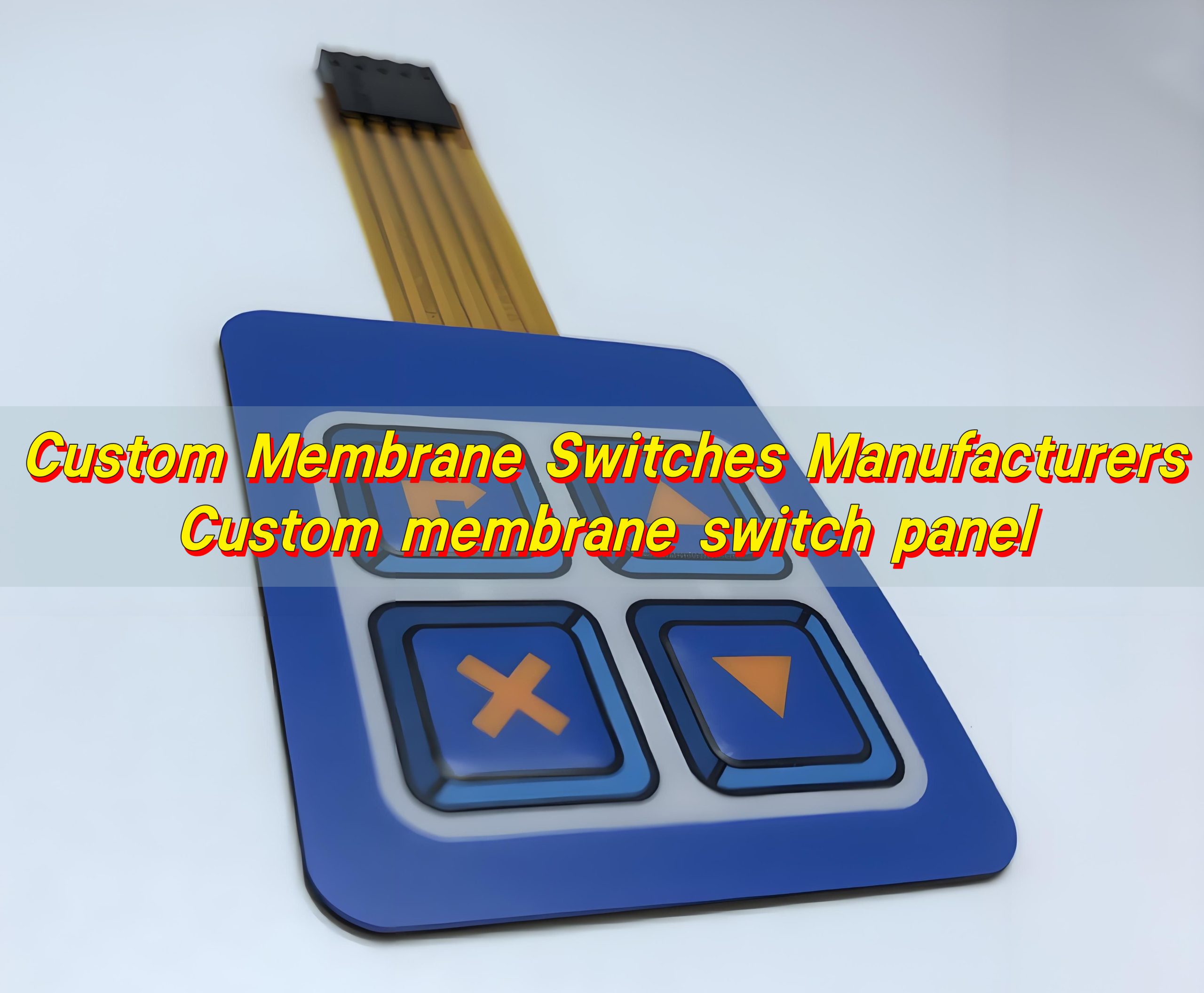
Custom Membrane Switches Manufacturers, Custom membrane switch panel
What Are Custom Membrane Switches? Custom membrane switches are thin, flexible, and highly adaptable electronic interfaces. They replace bulky mechanical keys and provide a lighter and more controlled input experience. These switches allow you to customize every part of the interface. You can choose the look, feel, shape, features, and layout. You can adjust the ...
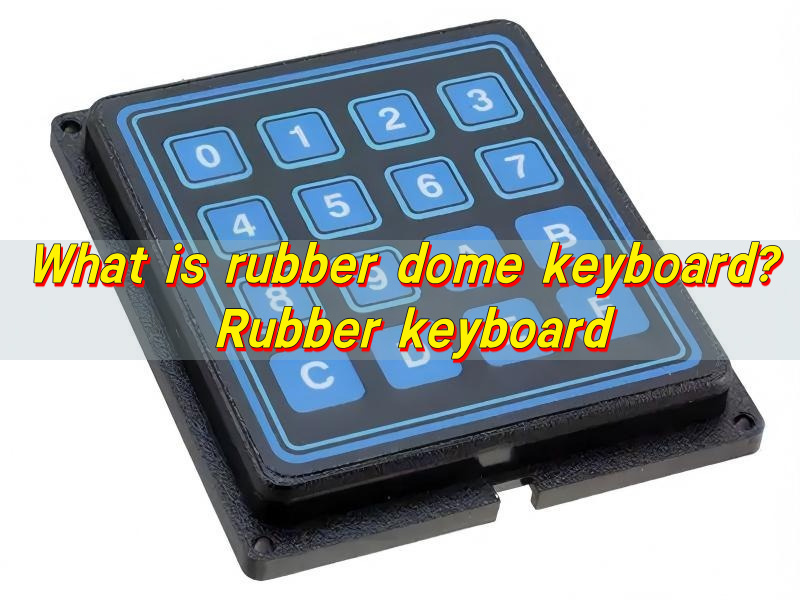
What is rubber dome keyboard? Rubber keyboard
Rubber keyboard is known for its soft feel, quiet operation, and reliable everyday performance. A rubber dome keyboard is a keyboard that uses a flexible rubber dome under each key to register input. When a key is pressed, the dome collapses and makes contact with the circuit below, sending a signal, then springs back when ...
Contact us online